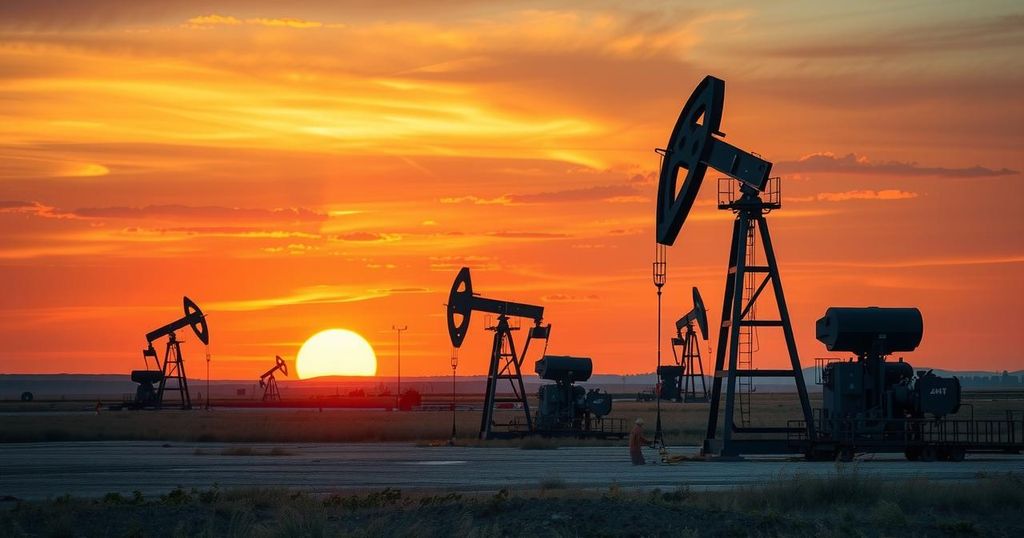Venezuelan President Nicolás Maduro claims that oil production will not decrease after the U.S. ends Chevron’s license to export. Opposition leader María Corina Machado welcomes the U.S. sanctions, linking them to reduced funding for governmental repression. Analysts predict economic growth may slow due to these developments, amidst concerns over inflation and fraud allegations in recent elections.
On Thursday, Venezuelan President Nicolás Maduro declared that oil production in Venezuela would not decrease “not even a liter” despite the recent termination of Chevron’s license to export crude by the United States. During his weekly television program, he asserted that under his “Absolute Productive Independence” plan, oil output would actually increase, defying U.S. sanctions imposed during President Donald Trump’s administration. He further emphasized, “Oil production will be maintained and will continue to grow.”
Maduro’s remarks come in light of the U.S. government’s decision to grant Chevron only 30 days to cease operations, a significant reduction from the standard six-month timeline. This decision followed Maduro’s failure to adhere to electoral and deportation commitments, and Chevron’s departure represents a notable setback for Venezuela, which had seen oil production rise above 1 million barrels per day in January 2025, the highest point since June 2019.
In contrast, opposition leader María Corina Machado expressed support for the actions taken by the White House, asserting that the measures would disrupt funding utilized by Maduro’s regime for repression instead of public welfare. She pointed out that the government had generated up to US$ 4.5 billion from Chevron’s operations in the previous year, funds that she claims were allocated to elite forces and lavish lifestyles for Maduro’s inner circle. Machado stated, “The regime used the money that belonged to the Venezuelan people to fund repression against the Venezuelan people.”
In her conversation with the Financial Times, Machado raised concerns about the destination of these oil revenues, stating, “Where did that money go? To the elite repression forces who now have new vehicles, new weapons and new technology.” She acknowledged that the measures from the new Trump administration pose a heightened threat to Maduro’s regime, highlighting the pressure it places on the government.
Analysts from Ecoanalítica anticipate that the termination of Chevron’s operations may lead to a slowdown in Venezuela’s economic growth, projecting a decline from 3.2% to 2% this year. This shift could weaken the bolivar, Venezuela’s currency, and exacerbate inflation, which surged to 48% in 2024. The previous administration under President Joseph Biden had initially granted Chevron’s license in 2022 to facilitate fair electoral processes. However, allegations of fraud marred Maduro’s electoral victory on July 28, 2024, as opposition members substantiated claims that their candidate had won despite contrary announcements by the National Electoral Council (CNE).
In summary, President Nicolás Maduro remains adamant that Venezuela’s oil production will not be negatively impacted by Chevron’s exit, insisting on a growth trajectory despite U.S. sanctions. Contrastingly, opposition leader María Corina Machado argues that the U.S. measures are crucial in stifling regime funding for repression, emphasizing the misallocation of oil revenues. As analysts predict economic repercussions from these developments, the challenges facing the Venezuelan economy may intensify amid ongoing political turmoil and historical allegations of electoral fraud.
Original Source: en.mercopress.com




